|
|
|
|||||
|
Choices
|
>Freud, Biologist of the Mind Freud, Biologist of the Mind received the Pfizer Award of the History of Science Society for the best book published in the field in 1979.
As Dr. Sulloway shows, this
revolutionary reassessment of Freud and psychoanalysis
runs directly counter to a complex myth that both Freud
and his followers have sought to propagate--a mythology
that pictures Freud as the lonely "psychoanalytic
hero" who, all by himself and against a universally
hostile outside world, "invented" a totally
original psychology through analysis of his patients and
(heroically) of himself. Dr. Sulloway not only unmasks
the historical distortions behind this legend, but
exposes the political functions it has served in the
history of psychoanalysis. Brilliantly written and
meticulously researches, this revealing work completely
transforms our understanding of Freud. After reading it
no one will ever see the man or his work in the same
light again. Comments about Freud, Biologist of the Mind:
"This is, quite simply, a stunning book that completely revolutionizes one's understanding of the subject. . . . I conclude that virtually the whole of the existing literature on Freud has been rendered obsolete. . . ." --Donald Fleming, Harvard University, Jonathan Trumbull Professor of American History, Emeritus "I found . . . that I almost literally could not put [the book] down. . . . It is not only fascinating as a kind of scientific detective story but an extraordinarily significant piece of work. It is easily the most important single contribution to Freudian studies since Jones's biography, [and] an excellent complement and corrective to the latter. . . . A work of monumental scholarship, it will at once advance its unknown authors into the front ranks of intellectual historians. . . . I am frankly envious of his achievement." --Robert R. Holt, Director Emeritus, Research Center for Mental Health, New York University "Really outstanding . . . in the plethora of materials on Freud, Sulloway really has something new to say. He blends the history of science with real scientific insight." --Edward O. Wilson, Harvard University "Freud, Biologist of the Mind is a brilliant and fascinating work which will revolutionize our conception of the origins of psychoanalysis." --Garland Allen, Stephen G. Brush, and Betty Jo Tetter Dobbs, from the citation of the Pfizer Award Committee of the History of Science Society. Excerpts from Reviews of Freud, Biologist of the Mind:
"In an astonishing intellectual debut, a young and hitherto unknown scholar, Frank Sulloway, has dismantled the mythic aura surrounding Freud. . . . Sulloway has carried a torch to the back of the cave of Freudian scholarship, and he has not only cast brilliant new light on that construction, he has come close to burning it down." --Russell Schoch, Science 80
"Sulloway has brought to bear great skills as an historian of ideas, an enviable degree of meticulous scholarship and a remarkable flair for lucid and agreeable prose. . . . Altogether this book deserves a wide readership among all interested in the history of ideas." --Marie Jahoda, New Scientist "It is always a pleasant experience to work one's way through a scholarly book in which the author states articulatedly, felicitously, and with all the necessary minutiae of documentation what the reader, before his encounter with the book, had vaguely surmised, inaptly speculated about, or had fragmentary intimations of. . . . Seldom have I been so taken by a text (other than the succession of Freud's own works) as by this one. . . . A great book that will have its impact for years to come." --Paul W. Pruyser, Bulletin of the Menninger Clinic "Mr. Sulloway argues his brief with gusto and erudition, knocking genuine adversaries, such as the Freudian old guard . . . into a polemic heap." --George Steiner, The Sunday Times [London]
"This book is a work of monumental scholarship; it is also a brilliant and ultimately tender piece of analysis." --Gerard Fromm, Commonweal
The winner of the Pfizer Award for the best book on the history of science by an American or Canadian author published in 1979 is Freud, Biologist of the Mind, by Frank J. Sulloway. Dr. Sulloway, who is now at M.I.T., wrote the book while he was a Junior Fellow at Harvard; it was published by Basic Books. This is the first time in its 22-year history that the Pfizer Award has been given to a book on the history of psychology or psychiatry. But Sulloway's work stands squarely in the mainstream of scholarship in the history of science since it demonstrates the relationship between the two systems of thought that have had the greatest impact on the modern view of our place in nature: Darwinian evolution and Freudian psychoanalysis.
Sulloway, by demonstrating the origins of Freud's phylogenetic speculations on the origins of civilization and morality, has done two things. (1) He has given us a glimpse of the exciting vistas that opened up for late 19th- and early 20th-century scientists as the implications of Darwinian evolution were absorbed. (2) He has also made it possible to relate Freud's ideas in a meaningful way to such diverse 20th-century developments as Carl Jung's arguments for a "collective unconscious" and Carl Sagan's delightful extrapolations from the structure of "Broca's brain." It is good historical writing that manages to illuminate not only an isolated event but what comes both before and after that event as well. Sulloway's book has already begun to play a role in the ongoing controversy over the scientific status of psychoanalysis. Yet even a writer who defends Freud as the "most important thinker of the 20th century," and complains that Sulloway has failed to explain why his theory was so successful, is forced to concede that this book "is a work of prodigious scholarship" which "establishes a new level of empirical precision and critical skill in the analysis of Freud's life" (Paul Robinson, in Psychology Today, September 1979). As historians of science were are pleased to see that one of our colleagues can add an important dimension to a contemporary debate. Freud, Biologist of the Mind is a brilliant and fascinating work which will revolutionized our conception of the origins of psychoanalysis. We congratulate Dr. Sulloway on his achievement." Pfizer Award Committee:
Garland Allen, Stephen G. Brush (chair), and Betty Jo
Teeter Dobbs
©2000 Frank Sulloway, Ph.D. |
|||||
|
||||||

 Synopsis (from the book's
dust jacket): This monumental intellectual biography
of Freud is the first serious reassessment of the great
man and his work since Ernest Jones's classic biography
of almost twenty-five years ago. Drawing upon a host of
new sources (including a detailed study of Freud's
private library), Sulloway demonstrates that Freud, in
spite of his later denials, always remained a "biologist
of the mind," that, indeed, his most creative
inspirations derived from biology. In a remarkable series
of detective-like reconstructions he shows how
psychoanalysis arose when Freud, strongly influenced by
the Darwinian biology of his time and by the bizarre
researches of his intimate friend Wilhelm Fliess,
substituted an evolutionary for a physiological model of
the mind.
Synopsis (from the book's
dust jacket): This monumental intellectual biography
of Freud is the first serious reassessment of the great
man and his work since Ernest Jones's classic biography
of almost twenty-five years ago. Drawing upon a host of
new sources (including a detailed study of Freud's
private library), Sulloway demonstrates that Freud, in
spite of his later denials, always remained a "biologist
of the mind," that, indeed, his most creative
inspirations derived from biology. In a remarkable series
of detective-like reconstructions he shows how
psychoanalysis arose when Freud, strongly influenced by
the Darwinian biology of his time and by the bizarre
researches of his intimate friend Wilhelm Fliess,
substituted an evolutionary for a physiological model of
the mind. 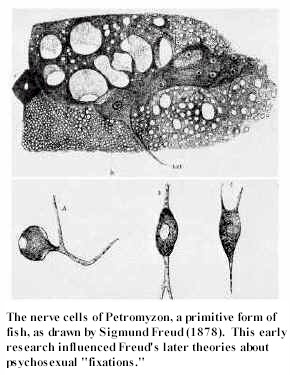 "An
outstanding book,
insightful, and written with grace." --Jerome
Kagan, Harvard University
"An
outstanding book,
insightful, and written with grace." --Jerome
Kagan, Harvard University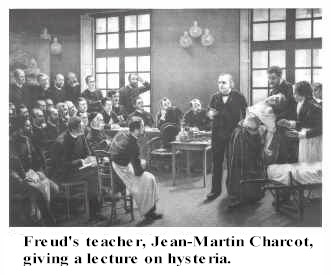 "No one before has
documented in such painstaking detail how Freud's
genius worked to transform his own and others'
observations into a thoroughgoing science of mind. .
. . Sulloway's "Freud" provides a though-provoking
tour through this extraordinary chapter in the
history of ideas" --Jean Strouse, Newsweek
"No one before has
documented in such painstaking detail how Freud's
genius worked to transform his own and others'
observations into a thoroughgoing science of mind. .
. . Sulloway's "Freud" provides a though-provoking
tour through this extraordinary chapter in the
history of ideas" --Jean Strouse, Newsweek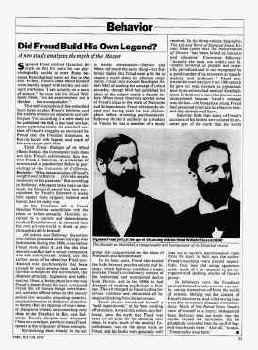 "[An] iconoclastic
study. . . . The standard version of Freud's
struggles, as recounted by Freud and the Freudian
historians, is heavily laced with legend, and much of
the story is just plain false."--John Leo,
"Did Freud Build His Own Legend?," Time
"[An] iconoclastic
study. . . . The standard version of Freud's
struggles, as recounted by Freud and the Freudian
historians, is heavily laced with legend, and much of
the story is just plain false."--John Leo,
"Did Freud Build His Own Legend?," Time 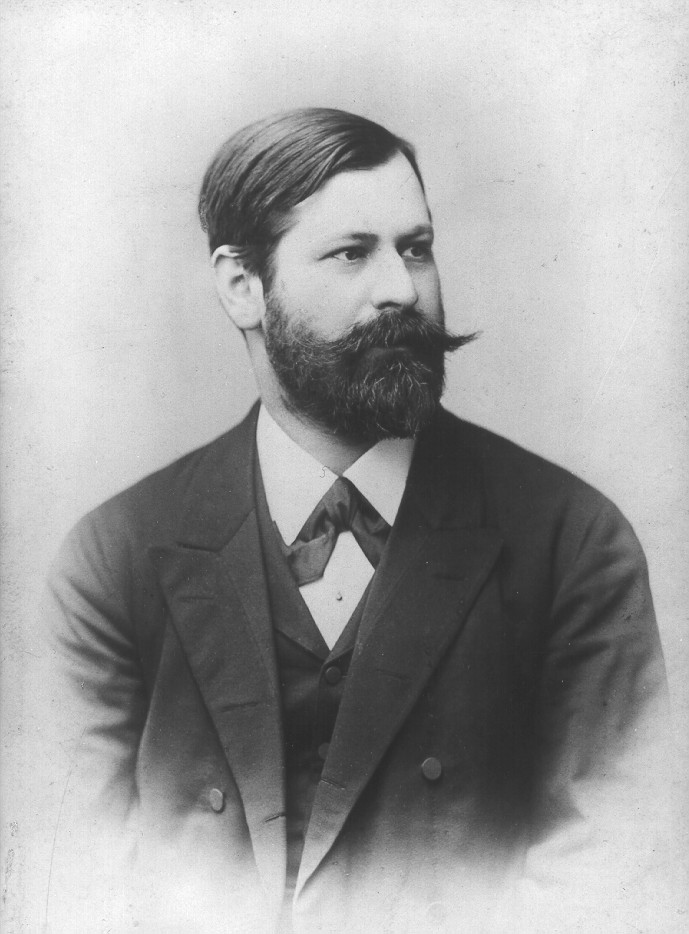 "All such items of commonsense wisdom are thrown into doubt .
. . by the publication of Frank Sulloway's Freud, Biologist of the
Mind. . . . Inexorably thorough, his book brings to mind visions
of those combine harvesters that sweep in unison over the great plains
of the mid-West. Straws in the wind are transformed here into
solid bales. . . . He has added both to conceptual history and
to psychology at one and the same time; as you read, you really do
learn something new both about the ways in which ideas take shape
within a discipline, and about how wayward even the finest human
intelligences are. --Liam Hudson, Quarto
"All such items of commonsense wisdom are thrown into doubt .
. . by the publication of Frank Sulloway's Freud, Biologist of the
Mind. . . . Inexorably thorough, his book brings to mind visions
of those combine harvesters that sweep in unison over the great plains
of the mid-West. Straws in the wind are transformed here into
solid bales. . . . He has added both to conceptual history and
to psychology at one and the same time; as you read, you really do
learn something new both about the ways in which ideas take shape
within a discipline, and about how wayward even the finest human
intelligences are. --Liam Hudson, Quarto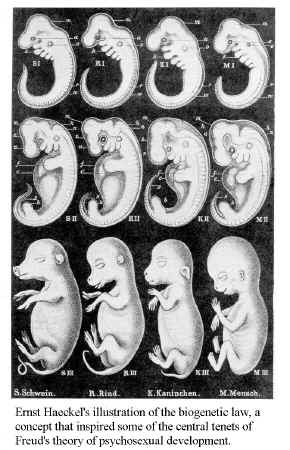 As long as Freud was treated as
a lonely hero who had completely liberated himself from
the doctrines of 19th-century biology and medicine, the
history of psychoanalysis tended to be an adjunct to
psychoanalysis itself and was made to serve the purposes
of competing schools, while offering little to attract
historians of other sciences. By going "beyond the
psychoanalytic legend" (as his subtitle says)
Sulloway has challenged the myth that allowed Freudians
to resist critical inquiry into the origins of their
theories, and has shown how those theories were at least
partly inspired by biological assumptions and ideas. Some
of those assumptions, it is true, have since been
rejected (Lamarckian inheritance and recapitulation), but
others have not (that the psyche develops through stages
just as do physical structures; or a neurological basis
for behavioral differences). The importance of Sulloway's
book seems to lie in the careful degree to which he drew
out the biological foundations for Freud's thinking. It
is no more a discredit to Freud, as Sulloway remarks, to
show that he derived his ideas in part from others, than
a discredit to Newton or Darwin to show that their ideas
had roots in the work of their predecessors. Furthermore,
it is no more a discredit to Freud to point out that some
of the ideas he used are now rejected by biologists, than
to make the same claim for Darwin (which is certainly the
case).
As long as Freud was treated as
a lonely hero who had completely liberated himself from
the doctrines of 19th-century biology and medicine, the
history of psychoanalysis tended to be an adjunct to
psychoanalysis itself and was made to serve the purposes
of competing schools, while offering little to attract
historians of other sciences. By going "beyond the
psychoanalytic legend" (as his subtitle says)
Sulloway has challenged the myth that allowed Freudians
to resist critical inquiry into the origins of their
theories, and has shown how those theories were at least
partly inspired by biological assumptions and ideas. Some
of those assumptions, it is true, have since been
rejected (Lamarckian inheritance and recapitulation), but
others have not (that the psyche develops through stages
just as do physical structures; or a neurological basis
for behavioral differences). The importance of Sulloway's
book seems to lie in the careful degree to which he drew
out the biological foundations for Freud's thinking. It
is no more a discredit to Freud, as Sulloway remarks, to
show that he derived his ideas in part from others, than
a discredit to Newton or Darwin to show that their ideas
had roots in the work of their predecessors. Furthermore,
it is no more a discredit to Freud to point out that some
of the ideas he used are now rejected by biologists, than
to make the same claim for Darwin (which is certainly the
case).